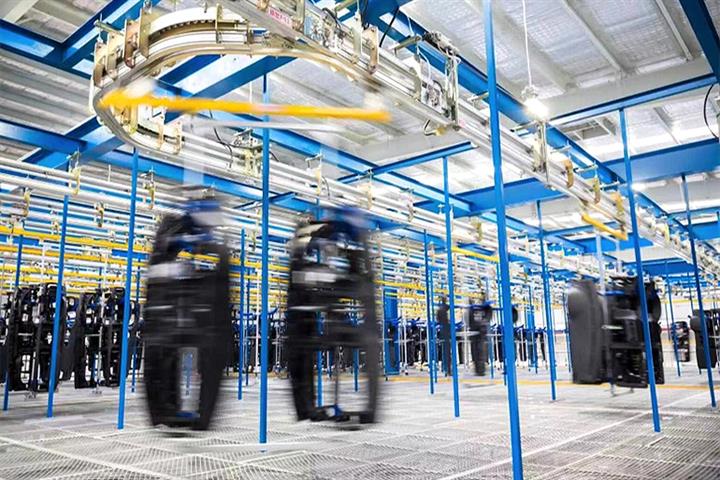 Chinese Engineers Give Up Internet Firms' High Pay to Enter Factories
Chinese Engineers Give Up Internet Firms' High Pay to Enter Factories (Yicai Global) Sept. 10 -- Chinese engineering talents are joining a new trend of leaving their high salaries at internet giants and moving to the manufacturing sector with large space for innovation.
"The added value of manufacturing remains relatively low, but there are many opportunities in high-end manufacturing," Zhao Heng, who left e-commerce behemoth JD.Com in the first half and joined an established manufacturing company to work in industrial internet, said to Yicai Global. Zhao has a doctoral degree in mechanical engineering.
The shift comes with a trade-off. The workload is less intense despite some overtime to solve problems, according to Zhao. However, salaries are much lower. "My annual salary declined nearly CNY100,000 (USD15,510)," he added.
For some people, the jump is worth it. "Everyone knows that workers at internet companies are both highly paid and exhausted. But except for the money, is there anything that can support your long-term persistence in the industry? This is what I was thinking at the internet company,” said Zhao.
Young Blue-collars
The allure of factories reaches young professionals.
"More than a half of our employees used to work at internet companies, and most of them are born in the 1990s,” Qin Peng, a staff member at an automobile solutions company in Hangzhou, said to Yicai Global. Qin, who studied statistics, recently won a championship in the automotive segment of the Global Industrial Internet Algorithm Competition in Shanghai.
Building concrete products can be rewarding. "We liked building blocks and cars when we were young. The physical machinery and tools in the manufacturing industry actually have a special sense of beauty for us.”
Five-Year Plan
The trend fits into a larger development strategy.
Manufacturing was mentioned in China’s 14th Five-Year Plan that continues till 2025. Within this time, the country aims to accelerate the development of a modern industrial system, and consolidate the foundation of the real economy, including rolling out the manufacturing power strategy and developing strategic emerging industries.
But reaching the big goals is not easy.
The barriers to integrate internet and manufacturing are relatively large, He Renlong, chief expert at the Shanghai Academy of Next Generation Information and Communications Technology, told Yicai Global.
The key to success lies in breaking through industrial obstacles, according to He. Engineering and interdisciplinary talents need to integrate industrial technologies and mechanisms with information technologies to build intelligent factories while promoting digital transformation, the expert added.
Some internet workers are up for the challenge. One of them left Alibaba Group Holding to answer the call.
The business environment was clearly starting to lean toward digital transformation and industrial internet, said Chen Yu, who was talking about the time when he decided to resign in 2018 to set up his own company in the field of industrial digital transformation. He had worked for the e-commerce giant for five years before that.
From Office to Workshop
The shift requires personal adjustment.
There is a big difference between the internet and manufacturing industries in terms of working environment and technologies, said Zhao.
"Traditional internet companies generally have nice office buildings in central business districts and good hardware," according to the ex-JD.Com employee.
But in manufacturing, staff needs to be present at factories to solve problems immediately when they emerge, he added.
Moreover, many things revolve around people in the internet industry, but machines are the center of attention in a factory, according to Chen, a former Alibaba employee.
A plant emphasizes stability, real-time actions, and standardization, but internet workers usually have some more detached and divergent thinking, which may lead to irregular professional behaviors.
A simple example is that being late for a meeting is not acceptable in automation companies, but it happens frequently in internet companies, Chen added.
But when the two worlds meet, the secondary industry can also learn a lot from software companies.
The most valuable experience is internet giants' natural advantages in data support and data processing, according to Chen. Manufacturers can use those as their edge to beat more old-fashioned rivals, he added.
Moreover, makers of physical goods can learn from internet firms, including Baidu, Alibaba, and Tencent Holdings, to improve their marketing, Chen added.
Editor: Emmi Laine, Xiao Yi